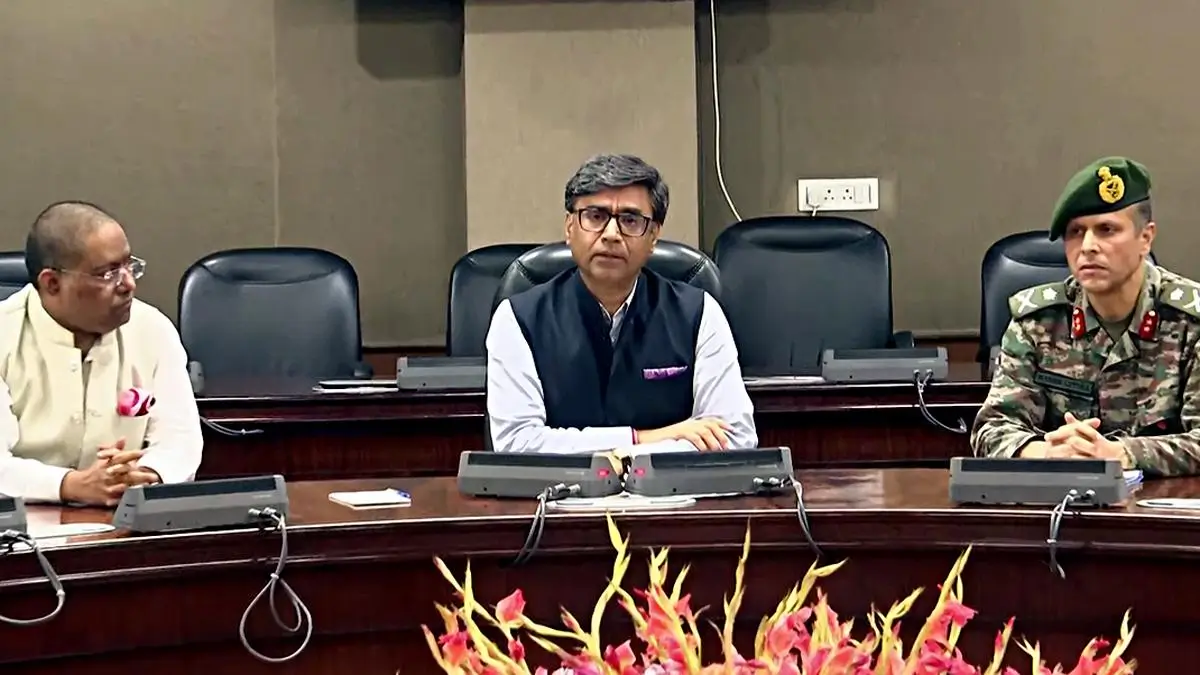In recent days, Foreign Secretary Vikram Misri has become the target of a disturbing wave of online abuse, sparking widespread outrage and concern across social media platforms. Misri, a seasoned diplomat known for his pivotal role in shaping India’s foreign policy, has been subjected to defamatory comments and personal attacks that have raised serious questions about the state of online discourse.
The Incident: What Happened?
The online abuse directed at Vikram Misri reportedly began after a series of public statements he made regarding India’s foreign relations with neighboring countries. Some social media users, hiding behind anonymous profiles, launched a barrage of offensive remarks aimed at discrediting the veteran diplomat. While specific details of the posts have not been disclosed, the nature of the abuse has been described as severe, targeting both his professional and personal life.
The incident underscores a troubling trend of cyber harassment faced by public figures, especially those in high-ranking government positions. Misri, who has served as the Indian ambassador to several countries and now holds a crucial position as Foreign Secretary, has maintained a distinguished career characterized by diplomacy, tact, and professionalism.
IAS and IPS Associations Speak Out
Following the surge of abusive comments, several civil service associations, including those representing the Indian Administrative Service (IAS) and Indian Police Service (IPS), swiftly released statements supporting Misri. These associations condemned the unwarranted harassment and expressed concern over the increasing instances of online abuse targeting public servants.
The IAS Association, known for advocating the interests and well-being of civil servants, issued a statement on social media, saying, ‘It is unacceptable for public servants to be subjected to such unwarranted abuse. We stand in solidarity with Foreign Secretary Vikram Misri and call for strict action against those responsible for the defamatory comments.’
Similarly, the IPS Association emphasized the need for maintaining decorum and respect towards public servants. In a tweet, the association said, ‘Such targeted harassment of a senior public servant is unacceptable. We stand by Foreign Secretary Vikram Misri and urge authorities to take appropriate action against the perpetrators.’
Calls for Legal Action Against Online Harassment
The incident has once again brought to the forefront the urgent need for stricter regulations and enforcement against online harassment. Legal experts argue that targeted abuse against public servants not only undermines their credibility but also poses a serious threat to their personal safety.
According to cyber law specialists, the legal framework in India provides mechanisms to address online defamation and harassment. Sections 499 and 500 of the Indian Penal Code deal with criminal defamation, while Section 66A of the Information Technology Act addresses offensive messages sent through communication services. However, experts believe that these provisions require more robust implementation to effectively deter online abuse.
Advocate Priya Singh, a prominent cyber law expert, stated, ‘We need to send a clear message that online abuse and defamatory comments against public officials will not be tolerated. The law must be applied rigorously to hold perpetrators accountable.’
The Larger Implications of Online Abuse
The case of Vikram Misri is not an isolated incident. Several high-profile public figures, including politicians, bureaucrats, and journalists, have faced similar targeted attacks in recent years. Experts warn that such incidents, if left unchecked, could lead to a culture of fear and intimidation, discouraging qualified professionals from serving in public office.
A study conducted by the Internet Freedom Foundation revealed that public servants, particularly women and members of marginalized communities, are disproportionately targeted by online harassment. The study also noted that online abuse can have serious psychological effects, leading to stress, anxiety, and even withdrawal from public life.
Social Media Platforms Under Scrutiny
The incident involving Vikram Misri has once again highlighted the role of social media platforms in curbing online abuse. Despite implementing community guidelines and reporting mechanisms, platforms such as Twitter, Facebook, and Instagram have been criticized for their inconsistent enforcement of policies related to abusive content.
Activists and digital rights organizations are calling for more stringent content moderation and quicker response times to reports of harassment. Additionally, there is growing demand for transparency regarding the actions taken against accounts that engage in abusive behavior.
The Way Forward: Addressing Online Harassment
To effectively address online harassment, experts recommend a multi-pronged approach that includes:
- Strengthening Legal Frameworks: Updating existing laws to cover emerging forms of online abuse, including doxxing, deepfake dissemination, and cyberstalking.
- Improving Content Moderation: Holding social media platforms accountable for failing to curb abusive content and ensuring swift action against violators.
- Raising Public Awareness: Educating users about the impact of online harassment and promoting responsible digital behavior.
- Supporting Victims: Establishing dedicated support services for victims of online harassment, including legal assistance, counseling, and digital security resources.
- International Collaboration: Collaborating with global tech companies and international organizations to develop standardized protocols for addressing online abuse.
Conclusion: Standing with Vikram Misri
As the investigation into the abusive comments against Vikram Misri continues, the IAS and IPS associations remain firm in their stance, advocating for zero tolerance towards online harassment. Meanwhile, netizens are urged to report defamatory content and maintain responsible behavior across digital platforms.
The incident serves as a stark reminder of the challenges faced by public figures in the digital age, underscoring the urgent need for stronger safeguards to protect their dignity, reputation, and personal safety.

